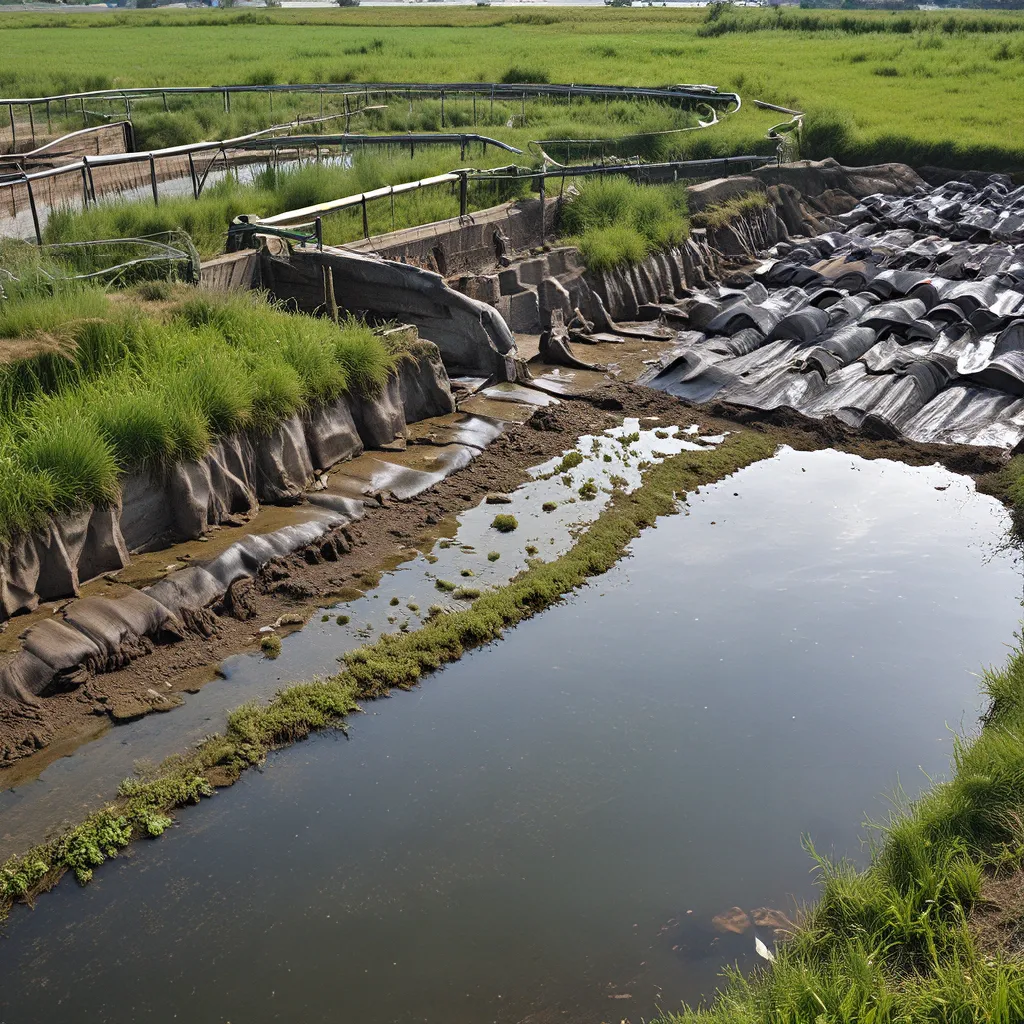
Picture this: A world where our waste is no longer just a burden, but a valuable resource. A future where the very things we’ve long thrown away are transformed into renewable energy, sustainable chemicals, and bioplastics. This isn’t some far-fetched fantasy – it’s the reality of the bioeconomy, and it’s a revolution that’s happening right under our noses.
You see, we’ve been looking at wastewater all wrong. It’s not just a smelly problem to be dealt with; it’s a goldmine of untapped potential. And as the world grapples with the depletion of natural resources and the need for more sustainable solutions, the bioeconomy is stepping up to the plate in a big way.
So, what exactly is this bioeconomy, and how can it turn our wastewater woes into golden opportunities? Well, let me tell you a story that just might change the way you think about your, well, you know…
The Bioeconomy: Where Waste Meets Wealth
The bioeconomy is all about using renewable, biological resources to create a more sustainable future. It’s a fancy term for the industries and technologies that are turning our waste into valuable products. And let me tell you, the potential is mind-blowing.
Think about it – every time you flush the toilet or run the sink, you’re flushing away a treasure trove of resources. Wastewater is packed with everything from nutrients and energy to bioplastics and biochemicals. And the bioeconomy is getting savvier by the day at extracting all that good stuff.
According to research, the bioeconomy is contributing to increased energy and materials production with reduced environmental impact, all while creating new job opportunities. It’s a win-win situation, and the opportunities are just waiting to be unlocked.
Turning Wastewater into Wealth: The Bioeconomy in Action
So, how exactly is the bioeconomy transforming our wastewater woes into sustainable solutions? Well, let me give you a few examples that are already making waves.
First, there’s the anaerobic digestion process, which uses microorganisms to break down organic matter in wastewater and produce biogas. This biogas can then be used to generate renewable energy, reducing our reliance on fossil fuels and cutting greenhouse gas emissions.
The European Union is actively investing in research and development to optimize these anaerobic digestion systems, making them even more efficient and cost-effective.
But that’s just the tip of the iceberg. Researchers are also exploring ways to extract valuable chemicals and bioplastics from wastewater. For example, food waste can be turned into biodegradable packaging, reducing our reliance on fossil-fuel-based plastics.
And the best part? These bioeconomy solutions aren’t just good for the environment – they’re also creating new jobs and economic opportunities. It’s a circular system that benefits everyone involved.
The Future of Wastewater: A Sustainable, Circular Bioeconomy
Now, I know what you’re thinking: “This all sounds great, but is it really feasible?” Well, let me tell you, the bioeconomy is already making serious waves, and the future is looking brighter by the day.
Companies like Alpha Wastewater are leading the charge, using cutting-edge technologies to extract valuable resources from wastewater and turn them into sustainable products. And they’re not alone – innovators around the world are constantly pushing the boundaries of what’s possible.
But it’s not just about the technology – it’s also about policy and social change. Governments and policymakers are recognizing the importance of the bioeconomy and are investing in it, creating the infrastructure and incentives needed to make it a reality.
And you know what? We as consumers have a big role to play, too. By embracing sustainable and circular solutions, we can drive the demand for these bioeconomy innovations and create a future where waste is a thing of the past.
So, what are you waiting for? It’s time to embrace the bioeconomy and see the potential in our wastewater. Who knows – your next flush could be the start of something truly remarkable**.